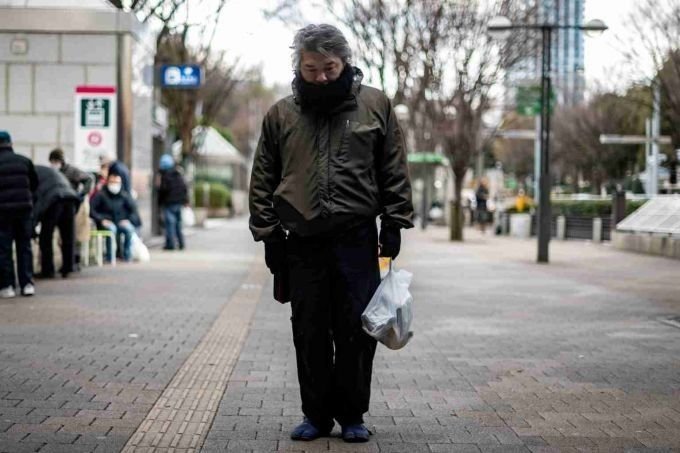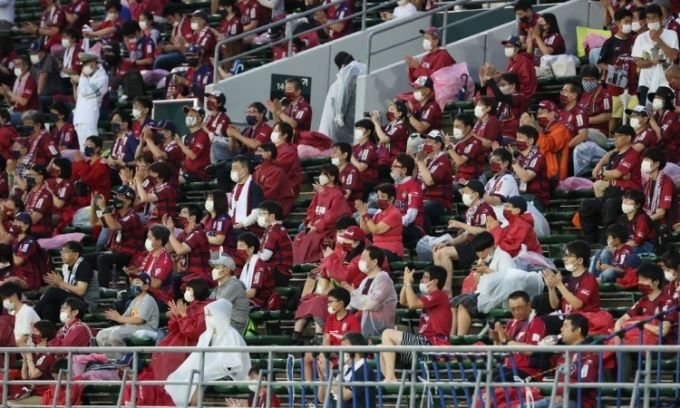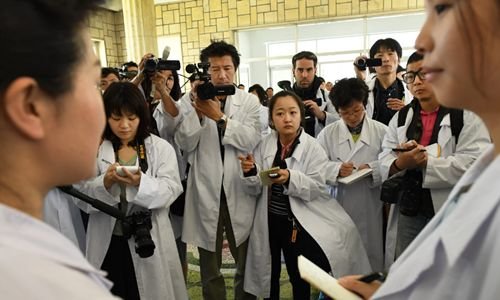
Covid-19 exposes Japan’s poverty
`I can’t find a job. Can’t find any work,` said Yuichiro, a 46-year-old construction worker unemployed because of Covid-19.
`There is a reality that is not mentioned in the media, which is that many people have to sleep at train stations and in cardboard boxes. Some people are starving to death,` he said.
Yuichiro received a bag of food from a support point for the poor in Tokyo on January 9.
Japan, the world’s third largest economy, did not suffer a severe wave of Covid-19, with nearly 330,000 infections and about 4,500 deaths, and most of the time did not undergo drastic blockades.
With an unemployment rate below 3% and a solid social safety net, Japan has shown good resilience to the economic disaster caused by the pandemic.
`The pandemic, along with rising unemployment and falling wages, has directly affected the working poor, who were already struggling to cope,` said Ren Ohnishi, head of the Birth Support Center.
About 40% of workers are working in `irregular` jobs with low wages and are vulnerable to termination.
Yuichiro said he had to go from one government office to another to apply for benefits, but was eventually told that the support was only for children.
`But there are a lot of adults who don’t have anything to eat,` he said.
More than 10 million Japanese people live on less than $19,000 a year, while one in six people live in `relative poverty` with an income less than half the national average.
Economists say half a million Japanese have lost their jobs in the past six months, and campaigners say the impact is spreading.
`I know for sure that the middle class is collapsing,` said Kenji Seino, head of the nonprofit relief group Tenohasi.
About 250 people lined up in Ikeburo district to receive food, clothes, sleeping bags and medical help from Tenohasi’s volunteer team.
`Many people were struggling to make ends meet before Covid-19 broke out. They were already as tight as a string and now the string has broken,` he said.
Experts warn that economic pain could contribute to the rising suicide rate since late last year in Japan.
Women, in particular, are facing economic hardship as the majority work on short-term contracts in the retail, restaurant and hotel sectors, industries hit hard by the pandemic.
Experts say women are often hesitant to seek help or afraid to join men waiting in line for food aid.
Seino said less than 20% of the people he helps are women, but he believes there are `still a lot of people` who haven’t come forward.
`Some women feel that their children cannot walk with their heads held high if they apply for benefits,` he said.
While statistics show the number of applications for state benefits is increasing, Ohnishi said the shame and stigma of having to apply for benefits makes many people reluctant to seek help.
`The system itself has a rule that it prioritizes helping people with families first. So the family will receive notifications like ‘your son is applying for social welfare,’` Ohnishi said.
`This is a unique Japanese cultural system. Everyone has the legal right to use it. But society does not necessarily accept this.`
Campaigners admit the scale of poverty in Japan is lower than in many other countries, but this means those struggling to fill their stomachs and find a warm place to sleep have little help.
A man receiving assistance in Ikebukuro said his monthly income from his job as a construction worker had dropped to less than $200 a month and had just enough money to pay one more rent.
`I don’t want to sleep on the street, it’s too cold,` he said.


